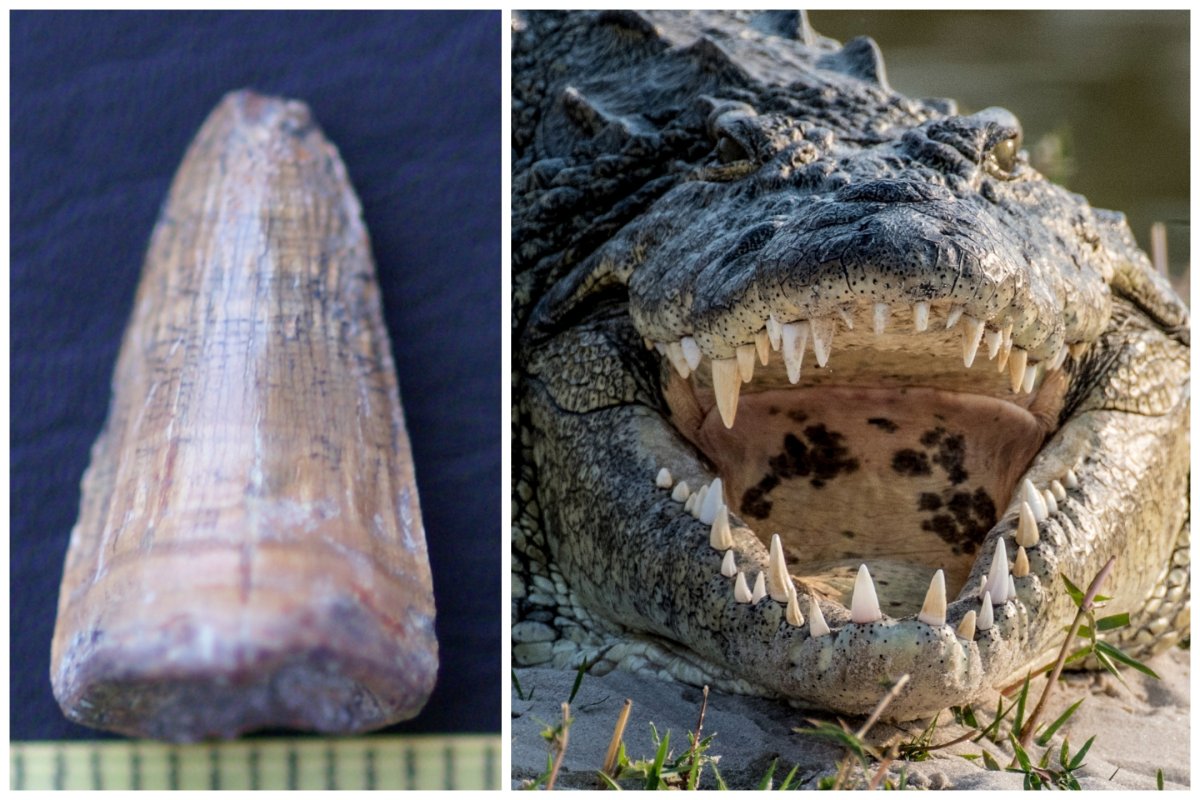Researchers have uncovered hundreds of ancient animal fossils from more than 4 million years ago, including the remains of what they believe may have been the "last crocodile" in Europe.
The discoveries came during excavations that began in September at the "Baza-1 site" in the province of Granada in southern Spain, the Catalan Institute of Human Paleoecology and Social Evolution (IPHES) announced in a press release.
The site was discovered in 1996, but it was not until 2000 and 2001 that systematic excavation work resumed. During these excavations, researchers recovered more than 2,000 fossils in an area no larger than about 320 square feet, most of which represent extinct animals.
"The site of Baza is dated circa 4.5 million years old, and it is one of the few sites with this chronology in Europe. The density of fauna (large and small vertebrates) and flora is really unique," the leaders of the research, Antoni Canals with Rovira i Virgili University and the IPHES, and Sergio Ros-Montoya at the University of Malaga and Bienvenido Martínez Navarro, also with the IPHES, told Newsweek.
Now, paleontologists have uncovered more than 500 fossils of large and small vertebrates at the site. The bones are around 4.5 million years old and in an excellent state of preservation, according to the researchers.

Among the remains are those of mastodons—an extinct type of elephant-like mammals—rhinoceroses, two species of horse, bovids of various sizes, large and small deer, pigs, large carnivores and turtles.
Sifting through sediments extracted from the site also revealed the presence of numerous small mammal remains, including those of rodents, rabbits and shrews; various amphibians; reptiles; and fish, as well as a large quantity of wood and plant remains.
But perhaps the most intriguing fossil that the team found was the tooth of a crocodile—the first to be uncovered at Baza-1. The researchers said that the tooth represents a crocodile species of African origin and that this is the only discovery of its kind in the European fossil record from this period. This suggests that it was the last crocodile species to be found on the Continent.
"This is a species of crocodile of African origin that arrived in the Iberian Peninsula crossing an arm of the sea just before the Mediterranean dried up during the Messinian salinity crisis, just over 6 million years ago," Navarro said in the press release. "It is most likely the last crocodile in Europe."
The Messinian crisis was a geological event that occurred roughly 6 million to 5.3 million years ago. During the event, the Mediterranean Sea became disconnected from the Atlantic and large swaths of it dried up, leaving behind highly salty remnants that were inhospitable to life.
It is theorized that the crisis eventually came to an end with an event known as the Zanclean flood, which refilled the Mediterranean basin and reconnected the sea to the Atlantic.
"The importance of the [Baza-1] site is that...it is most probably the best fossil continental record for the post-Messinian times in Europe. During the Messinian salinity crisis, the Mediterranean became dry, and it was possible to cross from the northern African region to the Iberian Peninsula, and vice versa," the researchers told Newsweek.
"After the finding of the crocodile tooth in Baza, we know that crocodiles are present in this site in a chronology where they were never found before."
These crocodiles arrived in the Iberian Peninsula about 6.1-6.2 million years ago, and until now, there was no evidence that they were present in Europe any later than 5.0 million years ago.
The researchers are hoping that analysis of the fossil discoveries at Baza-1 will enable them to reconstruct the ancient environment of this fossil site.
To date, the evidence uncovered at the site indicates that it was dominated by a tropical/subtropical climate—characterized by high temperatures and abundant rainfall—and an ecosystem consisting of large forests and some open areas where herbivores, such as three-toed horses, grazed.
Update 10/18/23, 2:46 p.m. ET: This article was updated with comment from Antoni Canals and Sergio Ros-Montoya.
Uncommon Knowledge
Newsweek is committed to challenging conventional wisdom and finding connections in the search for common ground.
Newsweek is committed to challenging conventional wisdom and finding connections in the search for common ground.
About the writer
Aristos is a Newsweek science reporter with the London, U.K., bureau. He reports on science and health topics, including; animal, ... Read more
To read how Newsweek uses AI as a newsroom tool, Click here.





